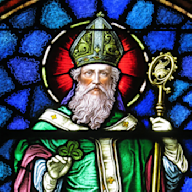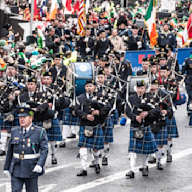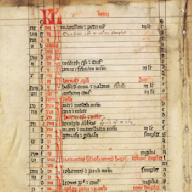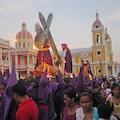Search results
Saint Patrick's Day, or the Feast of Saint Patrick (Irish: Lá Fhéile Pádraig, lit. 'the Day of the Festival of Patrick'), is a religious and cultural holiday held on 17 March, the traditional death date of Saint Patrick (c. 385 – c. 461), the foremost patron saint of Ireland.
Oct 27, 2009 · St. Patrick’s Day is a global celebration of Irish culture that takes place annually on March 17, the anniversary of the patron saint of Ireland's death in the fifth century.
Oct 29, 2024 · St. Patrick’s Day is the feast day of St. Patrick, a patron saint of Ireland. Originally celebrated with religious feasts and services, St. Patrick’s Day became a secular celebration of Irish culture when it reached the United States alongside Irish immigrants.
St. Patrick’s Day is a global celebration of Irish culture that takes place annually on March 17, the anniversary of the patron saint of Ireland's death in the fifth century.
Feb 1, 2019 · St. Patrick’s Day is a cultural and religious holiday held annually on March 17. Named after the patron saint of Ireland, Saint Patrick, the day celebrates Irish heritage with food, parades,...
Saint Patrick's Day, considered his feast day, is observed on 17 March, the supposed date of his death. It is celebrated in Ireland and among the Irish diaspora as a religious and cultural holiday. In the Catholic Church in Ireland, it is both a solemnity and a holy day of obligation.
Oct 14, 2009 · St. Patrick, the patron saint of Ireland, is one of Christianity’s most widely known figures. But for all of his prevalence in culture—namely the holiday held on the day of his death that...
Sep 30, 2024 · St. Patrick (flourished 5th century, Britain and Ireland; feast day March 17) is the patron saint and national apostle of Ireland. He is credited with bringing Christianity to Ireland and was probably responsible in part for the Christianization of the Picts and Anglo-Saxons.
Sep 6, 2015 · St. Patrick's Day was originally a religious observance in Ireland, his Feast Day, honoring the day of his death. Irish immigrants brought the observance to the United States in the 19th century where it has since become St. Patrick's Day, honoring Irish culture and heritage.
St. Patrick was a real person, but some of the traditions associated with him and the holiday are actually myths. For instance, you’ll often see the four-leaf clover on St. Patrick’s Day....











